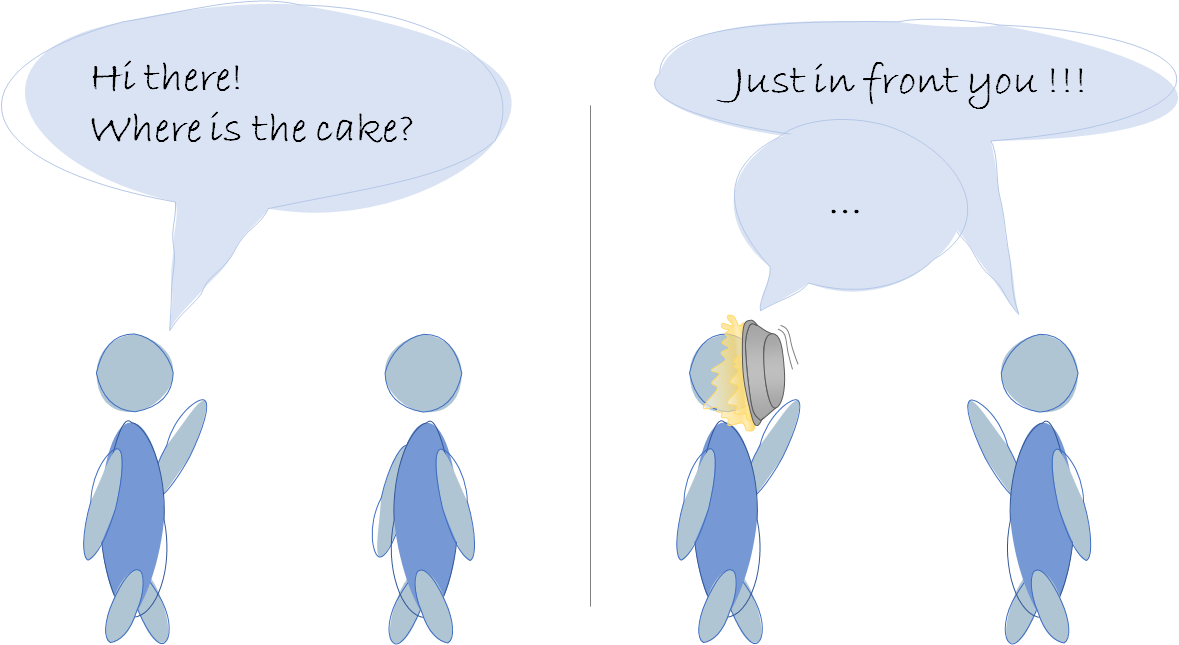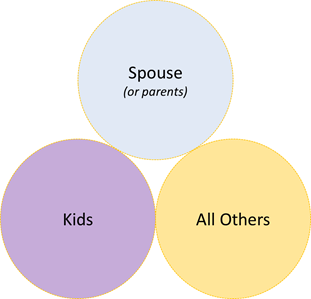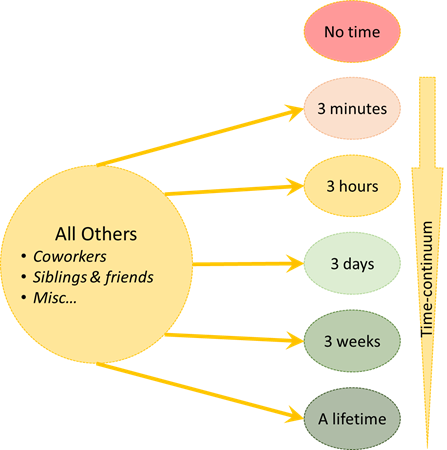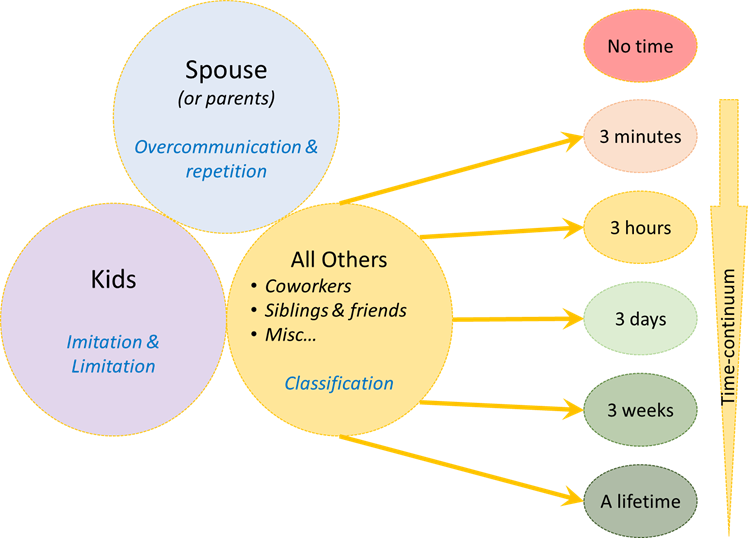Feb 2004, my cousin shows up for my birthday with CDs from Tony Robbins. Who is that guy? Personal Power?! What’s that?! I asked. It’s a 30 day personal development plan, just make it a habit to listen to it daily and commit to doing whatever he asks you to do, you’ll see a dramatic change, he replied. Piece of cake! By the way, where is the birthday cake?

That was the start of my personal growth journey. Since I had a few wins, struggles, and failures. 15 years down the road, I was having breakfast with a friend at the local Starbucks and he asked:
I Want to Grow as a Person but my (beloved) Relatives Won’t Let me. What Can I Do?
Here was my answer…
To clarify the issue at hand I’ll use a metaphor I once heard from Dan Lok in a TEDx he gave in 2016. Our life is regulated like a thermostat. If we are a 70°F person, nobody (including ourselves) wants to see us move away from that reference point. As we grow, the gap progressively settles between us and our acquaintances. Even friends, who were initial supporters, start resisting as we increase our “temperature”. They want us back to our usual thermostat setting. Our internal voice also reminds us we are a 70°F person. We just cannot stop its true colors from shining through. The rest of the article is here to explain how to…
…ESCAPE THE VICIOUS CYCLE
Jim Rohn said:
You are the average of the five people you spend the most time with
Click to tweet
Which means that if we want to grow:
- Either we have to let go our current friends and family and create another life elsewhere OR
- Stay with them and spoil any hope of improvement.
Luckily there is a 3rd option based on teachings from Darren Hardy’s success literature.
The gist of the article is that we need to proactively manage the influence our connections have on us and here is how.
LEARN TO CATEGORIZE PEOPLE…
Aristo Onassis used to carry a pocket notebook where he would rate his interactions with people he met to decide how much time this relationship is worth… You can do the same.

1. Spouse
Your spouse, or your parents if you still live with them, are the people with the strongest impacts. Not only do you frequently interact with them but your lives are interdependent.
For this category, the solution is over-communication and repetition. Those guys need to know exactly where you are heading and WHY it is that important to you; your intrinsic motivation. Even doing so, they may resist. While you should stay open to feedback, you should also be able to detect moments where your spouse or parents are not actually talking to you but to themselves.
In trying to maintain the status quo, chances are they are shouting their own limitations, fears… they may as well be jealous. If they insist on having you maintain the same lifestyle, habits… the former explanation is most probably true. If on the other hand, they emphasize on things like keeping a balanced life or staying true to your values you should not overlook their feedback.
So over-communicate, state what you think and feel frequently, stay open to feedback and whenever they try to drag you down explain (again) WHERE you are heading and WHY. Repetition will eventually get them to come to grips with your new reality.
In parallel, you need to set up a “Self Improvement Schedule” that spares QUALITY time (i.e. zero interruptions) for beloved ones. Your growth requires time and this time needs to come from low added value activities hence preserving your social life. According to Darren Hardy, most people, including busy CEOs, are able to spare at least 1 hour a day if not 3. Here are a few suggestions on how to save valuable time:
- Stop listening to the news.
- Actively use commute and queuing time.
- Less (morning) sleep, working-out regularly allows saving 1 hour of sleep.
- Less social media… Some of the above may shock you but whenever I’m shocked, I remind myself of Einstein’s quote:
Insanity Is Doing the Same Thing Over and Over Again and Expecting Different Results
Click to tweet
So if you want a change in your life, you need to change something. How you use your time is a good place to start.
2. Kids
Kids is a different animal, you influence them much more than they do. Your role with them is Imitation & Limitation.
All of us want the best for our children. To them, we are the best and worst gift. Most of their learning happens through mimicry and repetition. Whatever we do is bared normal even though they may not adopt it right away. For instance, some of your habits may be applicable to a teen but not to 5 years old. They will adopt them in due time. This is the IMITATION part. So smile, the camera is on ☺.
What you teach them through words is extremely limited even-though you may think that your talking does it all. Now, there is a specific situation where words are especially useful: correcting mistakes. Whenever they (or you) do something wrong, you need to put words on it. Explain the problem and the better option. This is the LIMITATION part, whenever boundaries are exceeded, you bring them back on track.
Read on if interested.
3. All Others
On the one hand, you cannot exchange your kids, nor your parents for others, you may do so for your spouse but it has been repeatedly reported as a painful process ☺. So let’s suppose you keep your current life companion.
On the other hand, you may need to exchange some of your current connections for people that are more in line with the “new You” or even better, with the person you are yet to become. Your connections should push you forward not backward. Here is how to handle that part:
1. For each context: work, social life & miscellaneous (e.g. sports club), list the 5 persons you interact most with. Remember you are going to have the average of their health, wealth, knowledge, attitude…
2. Ask yourself what you admire most about them and whether they will help you become the new You.
3. Based on the answer, classify them using the Time-Continuum proposed to the right of the below scheme. To the bottom are the perfect match you should normally be able to spend a lifetime with. On the other end of the continuum are the people which negativity is not welcome anymore, you need to go pass them. Then there are people you may have a quick 3 minute talk but not go for dinner with (3 hours). Likewise, you may be willing to spend a long weekend (3 days) with a friend but not your 3 week trekking trip. The principle is very simple, the more time you spend the more influence on your psychology you get.

4. After that cleaning session, you need to fill your life with new idols. Because it is not easy to be around our heroes, here are 2 quick tips: a. Seek venues where you can meet people with similar aspirations (seminars, sports club…) and b. listen to conferences and read books from people you admire. Even though there are not physically with you, they will surely have the intended influence. As Darren Hardy said in his book (The Compound Effect), the most influential person in his life after his dad is Jim Rohn. He spent thousands of hours in his company. While he knows him in person and repeatedly met, 99% of the time, Jim was not physically present but speaking through a CD or a book. You can do the same. So who are your Jims?
Now that you know who drags you down and who lifts you up…
…WHAT ELSE?
We get what we measure. So track it. You are establishing a new habit, you need to know how much progress you are making. Do it the Onassis way. During the 1st week of the coming 3 months, record in a table time spent with connections and see how it evolves to adjust what still needs to be.
TO SUM-UP

If interested in learning how to work with your nature and not against it, check out my book at WorkWithYourNature.com
